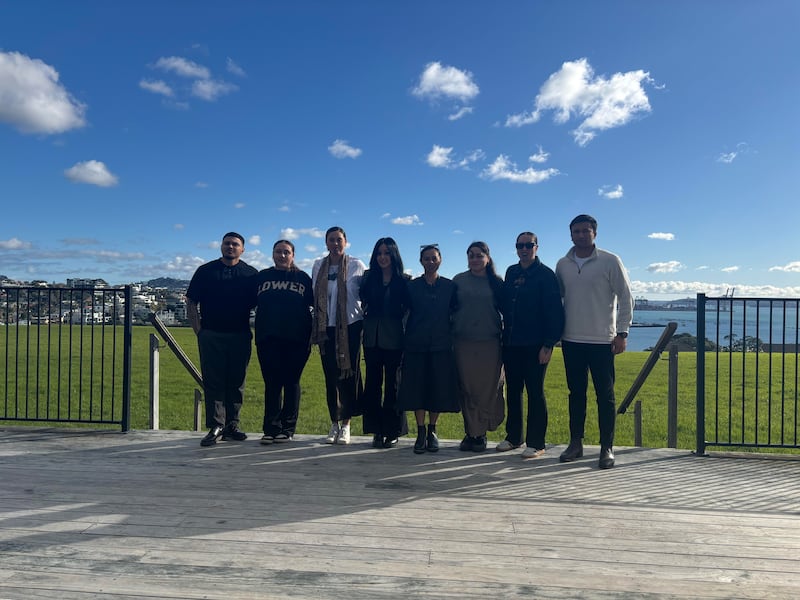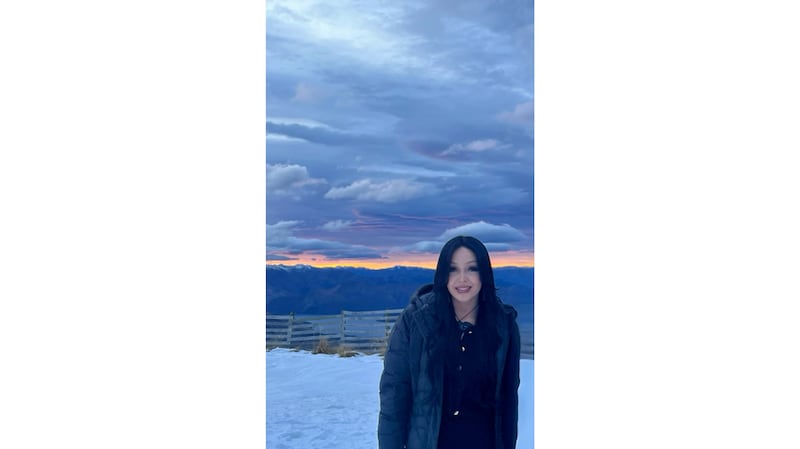Climate change is not a future issue for Māori; it’s happening now, from coastal erosion to marae being relocated due to cyclones, and the impacts are already being felt.
That’s according to a group of rangatahi Māori who are off overseas to talk climate change with other indigenous peoples from all over the world.
For the first time, a pan-iwi mandated rangatahi Māori delegation will attend the United Nations Framework Convention on Climate Change, known as COP30, which will be held in Brazil this year.

The tira will carry the aspirations of their iwi, hapū, and whānau to the international stage, pushing for stronger climate action grounded in mātauranga Māori.
Māori communities are already on the frontlines
Aaria Rolleston (Ngāi Tahu, Ngāi Te Rangi) says she’s honoured to be a voice for Ngāi Tahu, who are already seeing the impacts of climate change.

She serves on Wairewa Rūnanga Environmental Board, supporting kaupapa such as freshwater restoration and terrestrial regeneration.
“He haepapa nui ki te whakakanohi i kā mahi, i kā rautaki i whakaora taiao o tōku nei iwi, tōku hapū, ki te ao whānui,” he ai ki a ia.
“Huri noa i te ao, ko te huri ka āhuaraki te rā, e poro ana i ka here i waekā i te takata me tōnā taiao. Nā te māhanataka o te ao, kua kaha ake, kā marakai me te wai puke o te whenua. Kei te kite mārika i tēnei āhuataka ki te kāika, ki Te Waipounamu.”

For Harris Moana (Waikato, Ngāti Maniapoto), the urgency is also personal. He brings a background in agricultural science, a love for farming, and a connection to whenua.
His marae sit in vulnerable regions. Kāwhia is coastal, and Horohoro is by the Waikato River.
“We’re not all the same, we’re all in different regions, right from the North to the South. We all have our unique environments that make us,” Harris says.

Grounding global conversation in ancestral wisdom
Tahua Pihema (Ngāti Whātu Ōrākei, Te Aitanga o Māhaki) was a team leader for the Waihīrere Eco Warriors, where she worked on the whenua and in community taiao education programmes.
Tahua emphasises that ancestral wisdom isn’t something of the past and that it continues to contribute to the healing and wellbeing of people today.
“Ko tāku, ko te whakamana, ko te whakarewa i ngā kōrero tuku iho a mātou tīpuna,” hei tā Tahua.
“Tētahi tauira nui, ko te wā o te mate kōwhiori, ā, ko ngā āhuatanga tūpuna ko te manaakitanga, ko te whanaungatanga, ko te kotahitanga, i rewa ai te iwi Māori ki tērā o ngā haepapa, ki te manaaki i a tātou.”
Building the foundation for Māori climate leadership
Over sixty applicants put their names forward. The final ten were selected through a rigorous process involving interviews and wānanga, says lead Tyra Begbie (Ngāti Raukawa).
“Ko te whāinga matua i tēnei wānanga, ko te whakatū e ngā tūāpapa o tō tātou waka,” e ai ki a Tyra.
“The importance of this rōpū is that they are rangatahi who are connected to their own whānau. They’re grounded in their tuākiritanga. They’re grounded in their connection to their iwi and hapū.”
The selected delegation is: Taane Te Aho, Waimarama Hawke, Te Rina Porou-Ellis, Macy Duxfield, Harris Moana, Pania Rei, Kyla Campbell-Kamariera, Tahua Pihema, Shannon Mihaere, and Aaria Rolleston. Each being endorsed by their hapori and iwi, and secondly by the National Iwi Chairs Forum, to represent Ngāi Māori at the global event.

Dreams becoming a reality
Marama Royal (Ngāti Whātua Ōrākei) says this is a dream come true that is becoming a reality.
Royal is the Chair of Pou Take Āhuarangi which is the Climate Pou of the National Iwi Chairs Forum.
Last year at COP39 in Baku, Azerbaijan, she says it was evident the voice of Aotearoa was missing, and she asked herself how they could change that.
“My first thought went to rangatahi because they are our future. And so, what would it look like to take a kāhui of rangatahi to COP30 to be the māngai of Aotearoa?”
“The main thing is that this is just the start. Ko tēnei te tīmatanga o tēnei haerenga mō te mahi āhuarangi,” Harris says.
“Our mahi doesn’t finish after our haerenga to COP30. It will carry around for the rest of our lives.”
COP30 will take place in Belém, Brazil, between 10 and 21 November 2025.



